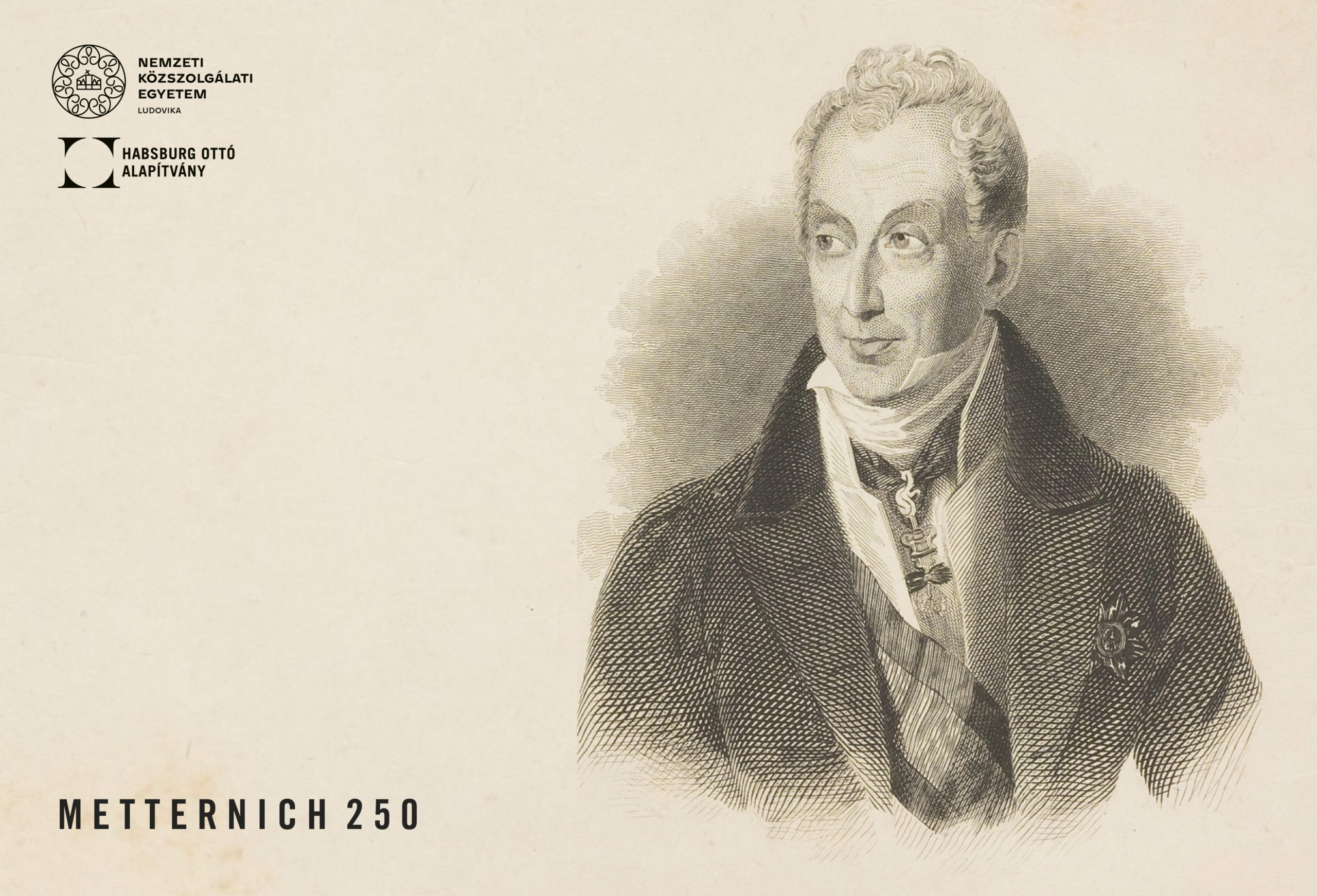PROGRAMMES
Between Constraints and Opportunities—Metternich 250
The Otto von Habsburg Foundation and the Institute for Strategic Studies are organising a discussion on Chancellor Metternich on the occasion of the 250th anniversary of his birth on 26 October at the Zrínyi Hall of the University of Public Service.
RegistrationVenue
Budapest,
University of Public Service
Date
Start
2023.10.26.Thursday16:30
End
2023.10.26.Thursday18:30

The Otto von Habsburg Foundation and the Institute of Strategic Studies of the University of Public Service paid tribute to the former foreign affairs minister, national security advisor and political scientist with a conference entitled “Values and Realpolitik—Kissinger 100” on the centenary of his birth. The event in May 2023 will be followed by a discussion on one of Kissinger’s foremost “heroes”, Chancellor Metternich, marking the 250th anniversary of his birth.
One of the most significant sources of Kissinger’s foreign policy thinking can be found in classical 19th-century European diplomacy. For Kissinger, the historical basis for understanding the multipolar international system was the establishment of congressional Europe, and the action patterns and inspiration for its formation were provided by the political choices and genius of the actors who shaped it. It is, therefore, no coincidence that one of the protagonists of his doctoral thesis – defended at Harvard in the early 1950s – was Chancellor Klemens von Metternich, a native of the Rhineland who made his career in the Danubian monarchy of the Habsburgs. Although the parallels between the challenges of 18-19th century Europe and the present day may have appeared strange and irrelevant to many, Kissinger recognised through Metternich’s example that one of the most important conditions for maintaining a lasting and stable international system was sustaining the balance of strength between the great powers, a principle he later sought to enforce as a decision-maker.
Otto von Habsburg, who remained in close contact with Kissinger until the end of his life and whose political insights were drawn from deep historical and dynastic experience he had always gladly relied on, made several references to the durability of the Metternich settlement. In his writings, the former heir to the throne repeatedly compared the Congress of Vienna and the Yalta settlement—in the light of the geopolitical realities of the Cold War. In his view, the importance of the first lies in the fact that although it was not necessarily fair or equitable, it was accepted as legitimate by all parties. Otto von Habsburg stressed that while the former created a lasting peace by gathering all parties to the negotiating table and reaching an agreement based on a balance of interests, the latter only brought decades of global uncertainty.
The dual round anniversary presents an excellent opportunity to focus on the foreign policy achievements of Chancellor Metternich and to discuss the extent to which his ideas are relevant in a time when Europe is facing geopolitical risks and threats again after a long interval; and when the “art of balancing the constraints and the possibilities”—in general, the question of the compatibility of value and goal-oriented political action—is once again of particular relevance. The panel discussion will bring together Hungarian experts on the subject with Bernd Posselt, a former colleague of Otto von Habsburg and later Member of the European Parliament, to consider the cornerstones of the Metternich legacy and the conclusions that can be applied even to our times.
programme_Metternich 250_EN